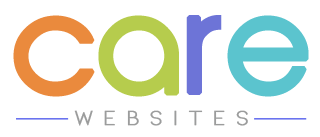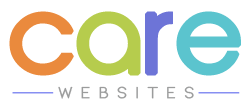In today’s rapidly evolving senior care industry, finding and retaining qualified caregivers is more challenging than ever. The demand for skilled caregiving professionals continues to rise, making it essential for agencies to streamline their recruiting processes. One effective solution gaining momentum is the use of Customer Relationship Management (CRM) systems for caregiver recruiting. In this article, we’ll explore the numerous benefits of automating caregiver recruiting with a CRM system.
1. Introduction
The demand for caregivers has surged in recent years, driven by an aging population and an increased focus on home-based care. Consequently, home care agencies, long-term care facilities, and home healthcare providers are constantly seeking competent caregivers to provide quality care to their clients.
2. The Growing Demand for Caregivers
The aging baby boomer population is a significant factor in the increasing demand for caregivers. As seniors age, the need for assistance with daily activities, medication management, and companionship also rises. Consequently, home care agencies must adapt to this growing demand to provide the best care possible.
3. Challenges in Traditional Recruiting
Traditional caregiver recruiting processes often involve manual tasks, paper documentation, and a heavy reliance on job board posting. These methods are not only time-consuming but also prone to errors, making it challenging to find and retain the right candidates.
4. What is a CRM System?
A Customer Relationship Management (CRM) system is a technology solution designed to manage and optimize interactions with potential and existing customers. While traditionally used in sales and marketing, CRM systems have found their way into the healthcare industry, specifically in caregiver recruiting.
5. How CRM Enhances Caregiver Recruiting
Implementing a CRM system can revolutionize caregiver recruiting by centralizing candidate data, automating communication, and providing valuable insights into the recruiting process.
Centralizing Candidate Data:
In traditional caregiver recruiting, candidate information is often scattered across various sources, such as emails, paper resumes, and spreadsheets. This fragmented approach can make it challenging to keep track of potential candidates efficiently. When you implement a CRM system, all candidate data is centralized in one place. This means you have a structured database where you can easily store, access, and update candidate information. This centralization simplifies the process of finding and managing caregiver candidates, reducing the risk of overlooking qualified individuals.
Automating Communication:
Effective communication is key to successful caregiver recruiting. However, managing communication manually, such as sending follow-up emails, interview invitations, and updates, can be time-consuming and prone to human error. A CRM system automates these communication processes. It can send automated emails, reminders, and notifications to candidates at various stages of the recruiting process. This not only saves time but also ensures that candidates receive timely and consistent communication, which can enhance their overall experience and engagement with your agency.
Providing Valuable Insights:
A CRM system is equipped with reporting and analytics features that provide valuable insights into your caregiver recruiting efforts. It tracks key performance indicators (KPIs) like the time it takes to hire a caregiver, the conversion rate from applicants to hires, and the sources of your best candidates. These insights help you make data-driven decisions, allowing you to refine and improve your recruiting strategies. For example, if you notice that candidates from a specific source tend to be hired more frequently, you can allocate more resources to that source for better results.
6. Benefits of CRM in Caregiver Recruiting
Improved Candidate Sourcing
A CRM system allows agencies to collect and categorize caregiver candidate information efficiently. This organized database simplifies the sourcing process, making it easier to find candidates with the right qualifications and experience.
Enhanced Candidate Engagement
CRM systems enable agencies to create personalized communication strategies for candidates. Automated follow-up emails, reminders, and notifications keep candidates engaged throughout the recruiting process, increasing the likelihood of successful placements.
Streamlined Application Process
Candidates can complete applications online through the CRM system, reducing paperwork and administrative burden. This streamlined process ensures that candidates can apply quickly and easily.
Efficient Communication
CRM systems facilitate seamless communication between recruiters and candidates. Email templates, scheduling tools, and automated responses improve efficiency and maintain a professional image.
Data-Driven Decision Making
CRM systems provide valuable data and analytics on the recruiting process. Agencies can track key performance indicators (KPIs), such as time-to-hire and conversion rates, to make informed decisions and continually improve their recruiting strategies.
7. Case Study: Successful Implementation
Looking for a real-world example? During our strategy session call we will explore a real-world example of a home care agency that successfully implemented a CRM system for caregiver recruiting and took their HR leads from 2 per month to over 100.
8. Key Considerations When Choosing a CRM
Selecting the right CRM system is crucial for caregiver recruiting success. If you schedule a strategy session with us, we’ll discuss essential factors to consider when making this important decision.
9. Conclusion
In conclusion, automating caregiver recruiting with a CRM system offers numerous benefits, including improved candidate sourcing, enhanced engagement, streamlined processes, efficient communication, and data-driven decision-making. As the demand for caregivers continues to grow, embracing technology like CRM systems is essential for healthcare agencies to remain competitive and provide quality care.
10. FAQs
Q1: Is implementing a CRM system costly?
Implementing a CRM system can vary in cost depending on the size of the agency and the chosen software. However, the long-term benefits often outweigh the initial investment.
Q2: Can CRM systems be customized to fit agency-specific needs?
Yes, many CRM systems can be customized to align with an agency’s unique recruiting processes and requirements.
Q3: Are CRM systems user-friendly for recruiters with varying levels of tech-savviness?
Most CRM systems offer user-friendly interfaces and provide training resources to help recruiters adapt quickly.
Q4: Can a CRM system integrate with other recruiting tools?
Many CRM systems offer integration capabilities with other recruiting tools and software to create a seamless workflow.
Q5: How long does it typically take to see the benefits of CRM implementation?
The benefits of CRM implementation can be seen relatively quickly, with improvements in candidate sourcing and communication occurring within the first few months.








